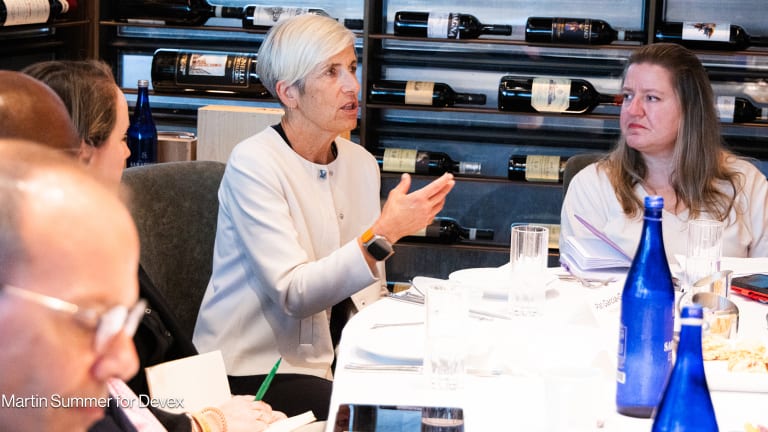
Every person in the world, at some point in their life, will need medicine.
For some, the need will be urgent — antibiotics for an aggressive infection, pain relief for a broken arm, a bronchodilator for an asthma attack. For others, the need will be lifelong — statins for cholesterol, antiretrovirals for HIV, beta blockers for hypertension. Most people will have both acute and chronic needs over the course of their lifetime.
And for too many, accessing the medicines they need, whether they be generics or branded products, will be difficult.
The world has collectively agreed that achieving universal access to safe, effective, quality, and affordable essential medicines is a priority: The United Nation’s Sustainable Development Goal 3 on good health and well-being for all, adopted by all U.N. Member States in 2015, explicitly includes this as a target.
But in 2023, halfway to the SDG target date of 2030, this goal is off track.
In 2018, the World Health Organization set an interim target for 2025 of an additional 1 billion people accessing essential health services, including medicines, without experiencing financial hardship. With less than two years to go, WHO estimates we are less than halfway to this goal.
Now is the time for action. The 2023 United Nations General Assembly, or UNGA 78, presents the opportunity for a turning point. The outcomes of the SDG Summit and the U.N. high-level meetings on universal health coverage, pandemic prevention, preparedness and response, and the fight against tuberculosis will impact our collective course. Achieving the desired outcomes will require new ways of thinking, new policies, new investments.
Access to medicines is a central thread of all these discussions. How health is financed and medicines are paid for, how equity in access is prioritized, how sustained availability of medicines is secured, how resilient supply chains are supported — these questions are valid in every country, in times of crisis and peace, whether for basic health needs, emergent pandemics, or the world’s top infectious killer — tuberculosis.
Implementing solutions will require new and evolved partnerships that bridge all stakeholders. The private sector has a very important role to play. To achieve our common objectives, we must work together to leverage our varied experiences and expertise. Reaching the world’s 8 billion people with the medicines they need, when they need it, requires aligned action — no stakeholder can accomplish this alone.
If the world’s collective ambition is to secure sustainable access to high-quality medicines, universally and equitably, implementing a business model to support this global approach is needed now more than ever.
At Viatris, access is fundamental to our mission of empowering people worldwide to live healthier at every stage of life. As a leading global supplier of medicines, reaching people in more than 165 countries and territories around the world, we are on the front lines of experiencing how societies can work differently, together, to enable access to health care, including access to medicines.
In 2022, Viatris supplied medicines to approximately 1 billion patients globally. In over 100 countries, across all income bands, Viatris’ locally available broad range of brand and generic medicines addresses more than half of the top 10 causes of death unique to each country.
We did not do this alone.
Our reach is the result of partnerships. Partnerships with governments, NGOs, and academia; with impacted communities and civil society, with other companies, with organizations, globally, regionally, and locally — fundamentally, with people who share the ambition to advance access.
For our part, this means going beyond developing, making, and distributing quality medicines to constantly seeking solutions to help close gaps to equal access to care, build more resilient systems for health, identify new financing models that focus on health as an investment, and sustain a reliable global supply of medicines.
To achieve the goals that we, as the world, have set for ourselves we need all stakeholders around every table to develop approaches that are fresh, sustainable, and fit for purpose — putting the needs of people at the center. There is no monopoly on good ideas — we need every voice.
And talking alone is not enough — we must move from words to action, together. The status quo is not an option. The international community will need to create more opportunities for the private sector to meaningfully engage in solutions. And the private sector will need to be open and ready to tangibly engage, credibly and transparently, in the collective pursuit of scaling access to meet every need.
For more information on Viatris at UNGA 2023 — visit our website.
This week at UNGA 2023, as the world joins in dialogues on how to achieve our common goals, let’s renew our collective commitment to access through partnership and action. Together, let’s work to build solutions, not only because we should, but because we cannot afford not to.








